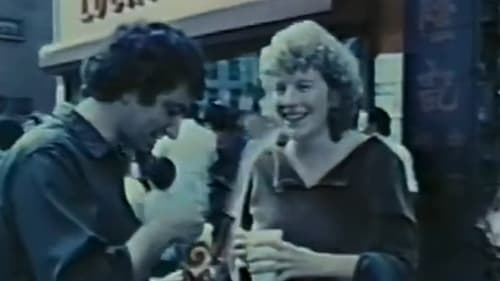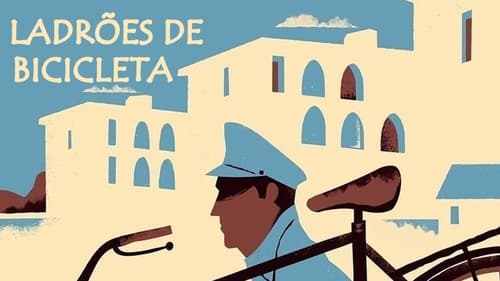Piero Heliczer
Nascimento : 1937-06-20, Rome, Italy
Morte : 1993-07-22
História
Piero Heliczer was an Italian-American poet, publisher, actor and underground filmmaker associated with the New American Cinema.

Self
Filmmaker Jonas Mekas films 160 underground film people over four decades.

Director
"Considered to be Mr. Heliczer's most experimental film." - Piero Heliczer

Writer
"The question is, it is either going to be a stoned age or a new Stone Age" - Louis Brigante

Director
"The question is, it is either going to be a stoned age or a new Stone Age" - Louis Brigante

Smith's third feature film was originally titled "The Kidnapping of Wendell Willkie by the Love Bandit," in reaction to the 1968 Presidential Campaign. Willkie was a liberal Republican who ran against FDR in the 1940's. It mixes B&W footage of Smith's creatures with old campaign footage of Willkie. The climax of the work appears to be the "auctioning" of the presidential candidate at the convention. - Flicker

Director
The story of Joan of Arc as applied to the present revolution in arts and more. The Gothic is applied to the War in Vietnam. The film is experimental in the sense that in it the visual becomes tactile.

Homeo is a mental construction made from visual reality, just as music is made from auditive reality. I put in this film no personal intentions. All my intentions are personal. I’ve made this film thinking of what the audience would have liked to see, not something specific that I wanted to say: what the film depicts is above all reality, not fiction. Homeo is, for me, the search for an autonomous cinematographic language, which doesn't owe anything to traditional narrative, or maybe everything. Cinema is, above all, part of a way of life which will become more and more self-assured in the years and century to come. We are part of this change, and that’s why I tried in Homeo to establish a series of perpetual changes, in constant evolution or regress, which tries, above all, to focus on things.

One of Andy Warhol's screen tests, focusing on an actor's face for 4-5 mins.

Writer
Part of the Dirt Trilogy

Director
Part of the Dirt Trilogy

Self
The films were made between 1964 and 1966 at Warhol's Factory studio in New York City. Subjects were captured in stark relief by a strong key light, and filmed by Warhol with his stationary 16mm Bolex camera on silent, black and white, 100-foot rolls of film at 24 frames per second. The resulting two-and-a-half-minute film reels were then screened in 'slow motion' at 16 frames per second.

Director
Two nuns take a bath, then meet a sailor on the Staten Island Ferry.

Himself
CBS bit on Piero Heliczer shooting his film 'Venus in Furs' (they mistakenly call it 'Dirt'). Released by Boo-Hooray as part of their exhibit on Heliczer and The Dead Language Press. Features the earliest known footage of The Velvet Underground. Shots of Angus MacLise on percussion, a bit of Heliczer on sax, interview segments with Jonas Mekas, Stan Brakhage (with a clip of a film he shot of Michael McClure) and Edie Segewick.

Director of Photography
Where a nun and a nurse go to hell because of their sinful life in St. Vincent's Hospital.

Where a nun and a nurse go to hell because of their sinful life in St. Vincent's Hospital.

Director
Where a nun and a nurse go to hell because of their sinful life in St. Vincent's Hospital.

A documentary on the beginnings of the cultural revolution on the Lower East Side, New York.

Director
A documentary on the beginnings of the cultural revolution on the Lower East Side, New York.

Himself
The couch at Andy Warhol's Factory was as famous in its own right as any of his Superstars. In Couch, visitors to the Factory were invited to "perform" on camera, seated on the old couch. Their many acts-both lascivious and mundane-are documented in a film that has come to be regarded as one of the most notorious of Warhol's early works. Across the course of the film we encounter such figures as poets Allen Ginsberg and Gregory Corso, the writer Jack Kerouac, and perennial New York figure Taylor Mead.

Travestis, hermafroditas e vampiros mergulham numa orgia bizarra que se mescla a uma curra com relances de pênis flácidos e seios.

A deliberately non-synchronous film, shot in 8mm with the sound on tape. Piero Heliczer reads his poem "The Autumn Feast," and the visuals interact with, but does not literally represent, what is read.

Music
A deliberately non-synchronous film, shot in 8mm with the sound on tape. Piero Heliczer reads his poem "The Autumn Feast," and the visuals interact with, but does not literally represent, what is read.

Writer
A deliberately non-synchronous film, shot in 8mm with the sound on tape. Piero Heliczer reads his poem "The Autumn Feast," and the visuals interact with, but does not literally represent, what is read.

Director
A deliberately non-synchronous film, shot in 8mm with the sound on tape. Piero Heliczer reads his poem "The Autumn Feast," and the visuals interact with, but does not literally represent, what is read.

A young boy (uncredited)
A história se passa logo após a Segunda Grande Guerra, com a Itália destruída e o povo passando necessidade. Ricci (Lamberto Maggiorani) consegue um emprego após muita espera. Só que esse emprego, de colador cartazes na rua, lhe pedia como obrigação uma bicicleta. Ricci e sua mulher Maria (Lianella Carell) conseguem um dinheiro para uma, possibilitando que ele realize o seu trabalho. Há também o menino Bruno (Enzo Staiola), filho do casal. Fascinado por bicicletas, o menino cai de cabeça com o pai na busca pela bicicleta que lhes foi roubada, quando Ricci trabalhava apenas em seu primeiro dia.

Sandrino Berti (Pucci)
The film is set in 1941 during the Second World War, when the city of Benghazi in Italian-ruled Libya was occupied by British forces. Italian inhabitants of Benghazi work to resist the British and discover their military plans. One man, Captain Enrico Berti, appears to be collaborating with the British but is in fact working undercover for Italian intelligence. The film ends with the city being recaptured by Italian troops and their Nazi German allies.















